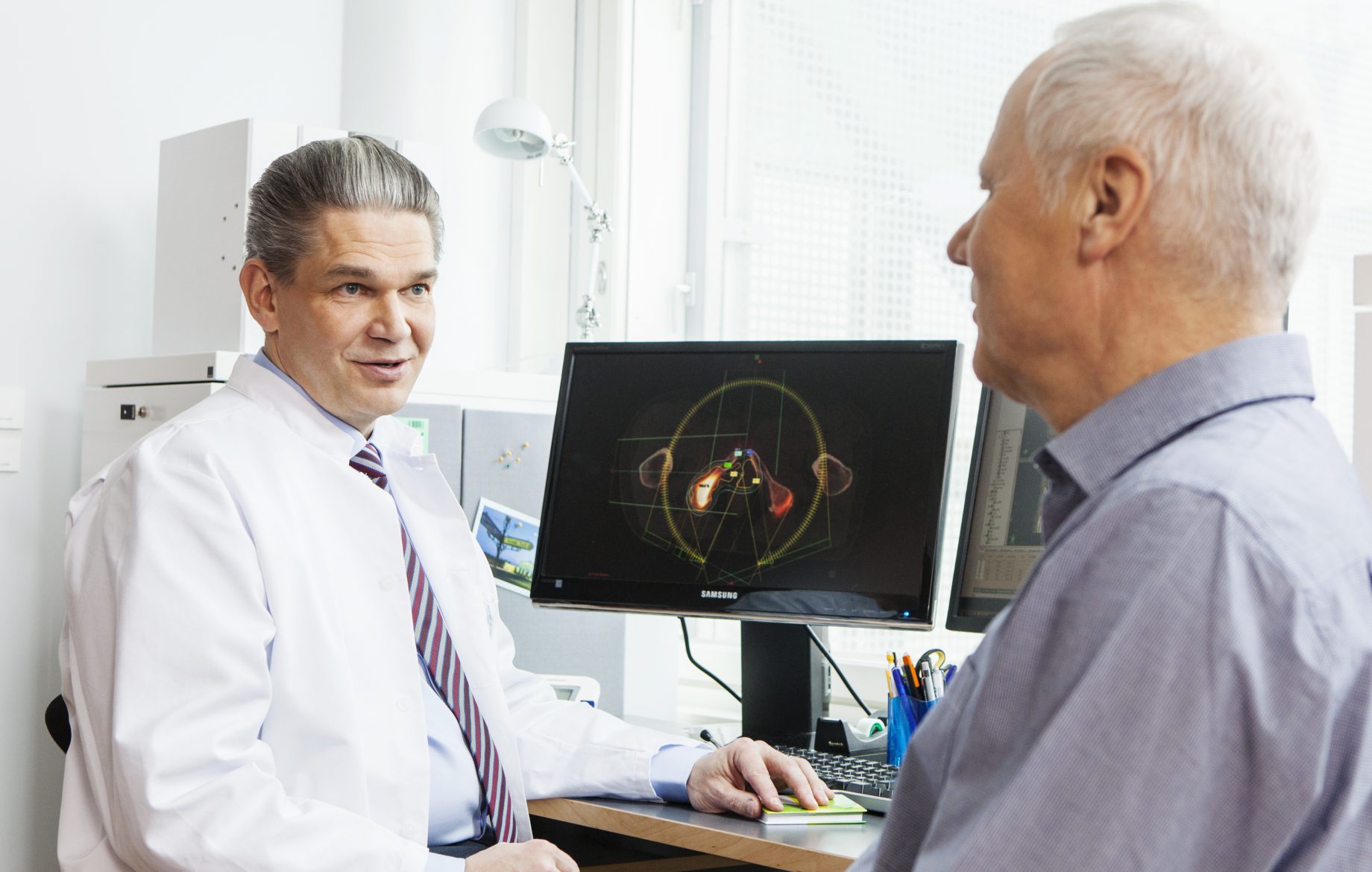The temporary technical problem in the data network connections
A temporary technical problem occurred in the data network connections of Docrates Cancer Center. We apologise for any delays caused...
Read moreMon–Fri 8–16

Modern up-to-date radiotherapy methods cause a man so few adverse effects that as a rule, there is no longer any need for active follow-up for prostate cancer.
Active surveillance has long been one of the treatment options for men with low-risk localised prostate cancer. Frequently, this option has been chosen, because the side effects of prostate cancer treatment have been thought to decrease a man’s quality of life during his lifetime more than the cancer itself would. While under active surveillance, the patient undergoes regular examinations and tests, and if the cancer shows any signs of advancing, the need for treatment will be re-evaluated.
Active surveillance, however, involves a risk of cancer progression, as one cannot know for sure, which of the localised cancers stay local, and which will possibly become aggressive and begin to spread. Even recent research results (Hamdy et al. 2016) have suggested that the active monitoring of prostate cancer is associated with higher incidences of disease progression and metastases than is immediate treatment. Regular surveillance biopsies also involve a risk of infection. Moreover, the high number of tests tend to increase the surveillance costs.
Today, the fact in favour of the immediate treatment of localised prostate cancer is that the use of modern tissue-internal or external radiotherapy minimises the adverse effects of the treatment. In other words, the man’s quality of life remains as good as possible, while simultaneously, it is possible to treat the cancer efficiently. The most advanced radiotherapy techniques have not even been found to involve a risk of secondary cancers.
If active surveillance is the best option, at Docrates Cancer Center it can be arranged individually tailored. In active surveillance, decisions are always made after a thorough discussion where the benefits and risks of surveillance are weighed. At Docrates, the discussion is attended by the patient and his family and close friends and, as necessary, a urologist and an oncologist, so that the overall understanding is as comprehensive as possible and the patient knows exactly what his situation is and how to proceed.
A temporary technical problem occurred in the data network connections of Docrates Cancer Center. We apologise for any delays caused...
Read more
Hannu Nurmio was aware that prostate cancer is the most common cancer in older men. However, after the diagnosis was confirmed,...

Early detection of colorectal cancer is crucial for successful treatment. If diagnosed early, up to 90% of cancers can be...

Docrates Cancer Center is the first service provider in the Nordic region to launch a new experimental alpha radiation treatment...
Contact us!
Mon-Thu 8:00-18:00, Fri 8:00-16:00
